Kate Bowler: Hi, I’m Kate Bowler, and this is Everything Happens.
K.B.: Look, the world loves us when we are good, better, best. But this is a podcast for when you want to stop feeling guilty that you’re not living your best life now. We’re not always having an eat, pray, love experience. I used to have my own delusion of living my best life now. I’m a Duke professor, wine and cheese enthusiast, wife and mom. Instagram gold. Then I was diagnosed with Stage 4 cancer. That was four years ago and I’m still here and now I get it. Life is a chronic condition. The self-help and wellness industry will try to tell you that you can always fix your life. Eat this and you won’t get sick, lose this weight and you’ll never be lonely. Believe with your whole heart and God will provide. Keep this attitude and the money is yours. But I’m here to look into your gorgeous eyes and say, hey, there are some things you can fix and some things you can’t. And it’s OK that life isn’t always better. We can find beauty and meaning and truth, but there’s no cure to being human. So let’s be friends on that journey. Let’s be human together.
Kate Bowler: I hate optimists. Sorry. What a way to start. But seriously, I hate optimists. Blind optimism is toxic. Sometimes things are as bad as they seem. And we need permission to say hard, true things, things that may not always be positive. But I love hopeful people. The people who, even while staring down the darkness, find ways to be kind and generous and courageous, not in denial of reality, but because of it. I wanted to talk to someone today who is deeply hopeful in the face of the unthinkable, because we could all use a little infusion of hard won hope these days.
K.B.: Today, I’m joined by my friend Wajahat Ali. Waj is a journalist, CNN contributor and all around hilarious follow on Twitter. He is also the dad of three adorable little ones. I met Waj as he was taking a break from the hospital. He was still wearing the bracelet and I remember how incredibly, beautifully tired he was. He was tired in the way that people get when they’ve been keeping watch and whose lives have been sucked into the endless vortex of waiting and waiting for results you can’t control. He had recently received news that no one should even imagine his toddler was very, very sick. Today, we’re going to be talking about living fully in the midst of a world you can’t control and about how to be hopeful, fundamentally hopeful, because I think Waj’s attitude about hope will surprise you. Waj, hey, thanks so much for being here.
Wajahat Ali: You have such a good podcast voice.
K.B.: Do you also feel like it sounds understanding?
W.A.: Was that it was so it was like soothing and understanding. It was, had that like perfect NPR-ish melody. That wasn’t sing-songy, but at the same time like kept you engaged. I was very I was like, you always say that when you give someone a compliment, in some traditions, to not give them the evil eye, you say you say, “oh, mo Shela.” I was like Moschella. She has a very good podcast voice that was. Very impressive.
K.B.: I’ll be sure that in the future I’ll just leave you long voice messages on your cell phone with exactly this voice.
W.A.: It’d be so good. I’d be like soothed. I feel like it’s my meditation moment. And now I feel informed.
K.B.: I’ll do it like dictation. Dear Waj, comma.
W.A.: Well, you- it should be funny. Like you should like say the most vile things, though.
K.B.: Yeah, yeah yeah I hated what I saw on Twitter today, you seem really inflammatory, best wishes comma Kate. Much love, commma.
W.A.: Yeah. You could do better.
K.B.: But I don’t even think that! I will never.
W.A.: Even if you did, it’s OK. Under Coronavirus you could be as honest as you want.
K.B.: I accept. I accept that social permission. For the first question this was a moment before I knew you. If you don’t mind, take me back to the day your world was turned upside down. You were on stage giving a TED talk and you planned this talk for months and months like I’ve done that process. It’s like months of prep. What was your talk supposed to be about?
W.A.: So my whole speech was to make the case for having kids in a modern society where there’s income inequality and climate change.
K.B.: Yeah.
W.A.: And the whole speech was a Trojan horse really to examine why in modern developed countries we are not having enough kids.
K.B.: Yeah yeah yeah.
W.A.: The negative consequences that are happening in society in China and Japan and the United States and Europe. And the Trojan horse was- was to end it with a case for pronatal policies, meaning affordable health care, paid parental leave, child care, and showing how if you help parents, especially women, it’s not that people don’t want to have kids, is that they want to have kids, but they feel so overwhelmed that they can’t.
K.B.: Yeah.
W.A.: I left my family, and my families is in Virginia. And my family at that time was my wife and my two kids, Ibrahim and my daughter, Nusayba. Early in the morning, my wife calls me crying and my wife never cries. So I’m like, “what’s happening?”
K.B.: Yeah.
W.A.: And she goes, I had to take Nusayba to the hospital. I said, “Why?” She says, I found like this- these a bump on her stomach. So I’m like “did she eat something?” Like it, well, yeah, you know, did she swallow something? And she goes and she was crying. And my wife is a physician and she goes, “so my spidey senses said, take her and they found bumps all over her liver.” I’m like, “what does that mean?” And my wife, again, being a physician without needing the final conclusive answer, said “this means this is cancer.” And I’m like, “what the? I’m like cancer? What are you talking about?” I just left her to like two and a half days ago. I was playing on her stomach.
K.B.: Yeah.
W.A.: And so that’s when she said “most likely it’s all over her liver, it’s like Stage 4 cancer.” I’m like, stage. And then the funny thing is you have to have some dark humor here. I’m like, “is that one of the good stages?”.
K.B.: Oh honey, oh honey, oh honey.
W.A.: Cause, I mean, you know, every stage is bad, but I’m like, and like, but, you know, it’s like I know it’s bad, but like, oh, maybe stage one is really bad. And like stage five is pretty good. And she’s like, “no, that means it’s all over her liver. And they fear it might have metastasized to the lung.” And so my first reaction was, and I’ll be very transparent, was I like I just a- I’m not a man who’s prone to anger, believe it or not, to kill all Muslim stereotypes I’m actually very chill. I just took like a fist. I just, like, hit the pillow and I said no.
K.B.: Yeah.
W.A.: And then the second thing I did was the-the barter prayer, which I call the barter prayer is like where, you don’t have to be religious you could- I’ve heard from parents who are even agnostic, or atheist, you do a trade and you sit there and you’re like, “OK, God or universe, Two year old girl, 38 year old man at that time with, you know, dad bod, you know, easy trade my life for hers or let me absorb her pain and like.” But, you know, you’re not going to hear a response.
K.B.: Yes. I’ll just I- I’ll never forget, you know, I was like thirty five and my dad is like sixty eight or something. And I was in the living room and leaning my head, sitting on the ground, leaning my head against his knee and he has his hand on my head and he goes, “oh sweetie, I- I pray, I pray all the time: why you and not me?” And I said, “oh, dad, that is like the nicest and saddest thing I have ever heard, because that’s- that’s parental love. And then he said, “but then I start to remember that Mozart was younger than you when he died.”
W.A.: So what have you done lately?
K.B.: But it’s like, it was exactly what he prayed every night. It’s like the second you hear news like that, it’s like all I would do in the whole world is absorb. It’s like if I could take this pain into my own body, I would do it. That’s just that’s the kind of love.
W.A.: And I’m sure if you asked your- if you asked your father every night for years or even now, does he do the same prayer? I’m very confident he would say yes.
K.B.: Yeah.
W.A.: This was almost a year ago to the day, like we’re talking about. And then I would, I went, two, three days later and I gave that talk, which you can find on Ted. And I had to incorporate this, this reality into that talk because I thought I would otherwise be doing a disservice to the talk.
K.B.: Yes.
W.A.: And I’d just be dishonest. And so my, my mom said, “you know, you’re coming back anyway and you’re already there. And so why don’t you go and give this talk for your daughter and do the best that you can?”.
K.B.: Yeah.
W.A.: And you can just imagine that it was the most surreal week because you’ve done, Ted. You know, there’s so many interesting people and they just line it up with so many, like back to back interviews and engagements, and you’re also prepping for this talk that the world will see. And meanwhile, the whole thing- the whole time, I just have to perform.
K.B.: Yeah. Living in this fugue state of pain.
W.A.: Yeah. And that’s exactly it.
K.B.: Instead of ending with pro-NATO policies, like what did you say instead?
W.A.: So I ended with a pro-NATO policies and then I said, you know, you know, having the decision to have kids was the best decision we ever made and I just shared with them. I said just three days ago I found out this news and you could hear a collective gasp in the audience like someone took out the entire air. I’ve never seen something like that before. Everyone just stop breathing for like 30 seconds because that crowd in particular, most people in the crowd had kids.
K.B.: Yeah.
W.A.: And then I said, “despite all of this, you know, my wife and I don’t regret the decision. It was the best decision we’ve ever made.” And, you know, I think I did say something nice and pointed, which I’m forgetting now. But I said, you know, I feel like I ended in a hopeful note.
K.B.: Yeah.
W.A.: I mean, I said kids at the end of the day represent our hope, our hope for the future. And if we choose to completely tap out, then what’s the point of all of us? Right? And I said, like, so, you know, what we hope to do is we hope to pass on kindness and love and decency. And that’s that’s if we can just do that, then maybe all this is worth it. And I meant it. Right? And so like because you- you sit there and you’re like, I’m making the case for having kids and my two year old has stage four cancer. We don’t know if she’s going to survive the month. Do I still believe this? And number two, did we make the right decision? Like this- is this where it starts playing tricks with you, right? Did I make the right decision to have a kid? It’s like this, if you knew your kid was going to have Stage 4 cancer and you can take the DeLorean back in time, would you still have the kid?
K.B.: Yeah. I’m wondering if there’s a Muslim analog to this, I’m just curious. Like because the way you’ve, the way you’re framing out this kind of love, it just reminds me of the um- there’s a hymn I really love that ends with like “even so, even so it is well with my soul.” And it’s about all of the terrible. But I always kind of imagined that like most of my beliefs could be summed up in like, “yes, but even so.” What I hear you saying with yes this is a terrible and scary world. Yes, there is pandemics and climate change and-and- and little girls that should never deserve to get sick. But like even so, we will continue to, to hope. Even so, we will have these beautiful expressions of love like even so. Even so,.
W.A.: Yeah. And there’s several a saying of the Prophet Mohammed, which is very similar to Christian and Jewish teachings, where he told his followers that even if you see the day of judgment coming around the corner, you have to plant the seed. So if you have the sapling in your hand and you’re like, “oh, I was going to plant the seed. Oh, look, it’s the four horsemen. They just came over the mountain, huh? What should I do?” And yeah, in the, in the, in the command, in the recommendation rather, from him was to plant the seed, which means even if it seems that literally everything will fall apart. You still have to have hope and not just have hope, you have to act on that hope.
K.B.: Yes, that’s right.
W.A.: Plant the seed so it could be of benefit to other people.
K.B.: Waj, I love that. You still- you still put that little tree in the ground. You still plant the- I come from a farming background and they would love that, Waj. They would love it. You have some really good advice about this. When it is your kid, when it’s- when it’s you, the one going through the awful thing. How should people respond? Like what were some of the really helpful things that people did to support you and your wife, Sarah?
W.A.: You have to realize that most people, if they’re awkward with you, it’s not because they don’t care. It’s that they don’t know what to say.
K.B.: Yeah.
W.A.: No one has been taught this etiquette. What do you tell a parent whose kid has cancer? No one knows. And so that, that, that awkwardness that can be so frustrating for us who are enduring it, it I’m just say- I’m just saying that many people want to help. They just don’t know how to. And so a kind word is good. I think knowing that a parent has probably explained the situation 47 times.
K.B.: That day. Yeah.
W.A.: If you really don’t need to have the thorough like plot line, don’t ask because people just get exhausted. I remember that, if you see the parent come out for the first time in a while don’t crowd them and just drill them with stuff.
K.B.: No curiosity. Yeah, no, curiosity is so costly.
W.A.: It’s costly. I mean, I was like I was nice to everyone, but I went out with my son once because my wife and daughter in the hospital and like there was a friend there having a birthday party, apparently, please just come. So I said, “oh I’ll take my son, this poor kid, you know, he was four last year.” But I remember everyone, again with best of intentions, crowded me for thirty-five minutes. And I was, I was I remember I just sat down drained. And then I was like, “let’s just get out of here.” Also, I think the stuff that really helps is the practical stuff. So put yourself in the shoes, if you must, of like a mom or a dad and you know, your life is crazy.
K.B.: Yeah.
W.A.: Well, the house doesn’t stop.
K.B.: Yeah.
W.A.: Your kids need to eat. Bills don’t stop. So what I found that was very helpful are these gift cards like GrubHub.
K.B.: Yeah.
W.A.: Was a huge help. If you’d- like these stores where you can buy like toiletries, like Wal-Mart gift cards. I’m just giving an example, right?
K.B.: Yeah. Love it. Love it.
W.A.: One thing I’ll say is playdates for the kids. Recommendations- like or even close friends are like, I know you guys are exhausted why don’t I take your kids for like two hours to play with my kids and you could take a nap.
K.B.: Absolutely.
W.A.: These are some very practical offers you can give to people that I think well, it’s not sexy, but it doesn’t have to be sexy. Like this is lifesaving stuff.
K.B.: Yeah, yeah, yeah.
W.A.: I’m just I just want to explain to people that that’s how devastating cancer is, that even a person like myself who is married, who has friends, my wife had a job. We had a little bit of savings.
K.B.: Yeah.
W.A.: Even then without a community to help us, we wouldn’t have made it.
K.B.: Yeah, that’s right. Yeah. And you never forget that, do you? Like the feeling that if it weren’t for a thousand threads holding us up, like you do fall all the way through. I think about that so much right now with so many people, just everything collapsing around them that most of us would not be okay if someone else didn’t come along. If a lot of someone else’s didn’t come along beside us.
W.A.: Yeah. And human beings are not meant to be islands like, you know, we- we learn, we learn how to. I mean people think, ‘well, like I did everything myself.’ You hear that sometimes?
K.B.: Yeah.
W.A.: “I did it all by myself.” Did you really do it all by yourself? Did you learn how to speak language by yourself? Did you learn how to like, you know, put on your-? Really right?
K.B.: Totally!
W.A.: Like if you really feel like it, we are dependent upon one another. And I think that sense of interconnectedness, like you said, has been magnified in a crisis where so many people now are shut off from community.
K.B.: Yeah, that’s exactly right. Yeah. And and and you say this story is one of like unbelievable community. So Nusayba went through chemo and then it was determined that a liver donation was her best chance at survival. But you and your wife weren’t candidates, is that right?
W.A.: So yes or so Nusayba is O blood type, which is awesome because it’s a universal donor.
K.B.: Yeah.
W.A.: It sucks because you only need O blood type. And unfortunately, my wife and I are not O, we’re A and B respectively. Because that’s another thing what people don’t realize when you’re you know that’s a reverse situation because you unfortunately Kate, you know you are living with it with cancer.
K.B.: Yeah.
W.A.: I come from the other perspective is that I’m the person, the father, who has to help. And it’s very it’s- it’s so devastating that, you know, fathers are- for especially a daddy’s girl. Right? Or like, girls look up to their dads, like dads are supposed to save the day. Like girl has a problem, dad fixes it. Simple. Right? Like that’s our job. Like, you know, she goes Dad. I don’t need you to fix anything. You just have to listen to me. You’re like what? You just listen to me, dad. You’re like, all right, fine I’ll listen. But if you want me to fix something like no, just listen to me, like, OK, just like that’s how dads think. Right? And so, it’s so humbling that you can’t fix this. You can’t fix cancer. And you sit there as a father and you’re like, I cannot help my little girl. Like, I’m useless. I’m so useless. I cannot even give my liver. And so and so it just you sit there and you go, like, what the hell can I do? I feel like a second bellybutton. Like, that’s how useful I am. No offense to those with second belly buttons, I’m sure you’ve found a good use for them.
K.B.: That’s a little public service for those whose inherent worth is wrapped up in their second belly button. Thanks Waj.
W.A.: Yeah, I just want to be politically correct for the second belly button community.
K.B.: Yeah yeah yeah, that was good. We’ll definitely make sure that all those are made aware.
W.A.: Usually if you’re lucky and I know I’m saying this with all, you know, relativity, you have it on a part of your liver and you do a biopsy and you remove it. And voila you do some chemotherapy and you pray to God everything’s fine.
K.B.: Yeah.
W.A.: And it’s all over the liver like my daughter. We tried, tried, tried, but all the doctors said, “we’ve got to get rid of the entire liver.” So now, while she’s doing chemotherapy, now we need to find a beautiful liver for her, which is O blood type. No one in my family has it. My mom has it. But she’s above the age, it has to be a certain age. Now, but thanks to our health care system, they’ll you know, if you have insurance, it’ll take care of the surgery. But what about the person who’s offering their liver and has to be knocked out for six weeks? Who’s going to take care of them? So now we have to do a call out. And this is where, you know, my mom said and my mom’s, you know Pakistani immigrant, she said, “I always wanted you to become a doctor, but maybe God made you into a writer with a lot of Twitter followers to save your daughter.”
K.B.: Oh.
W.A.: Because I deliberately kind of wrote a narrative and did a call out using social media to try to get a liver donor. And then that’s how it went viral. And we got over 500 people, mostly anonymous, to sign up to be potential liver donors for Nusayba. And Georgetown said, “we’ve never received so many applications. We have never done so many tests and nobody is matching with her. I’m like, what the F?
K.B.: Oh buddy, yeah.
W.A.: I remember the Georgetown transplant team was a few people. This lady said, I’ve never worked this hard for a girl. She’s in my dreams. She- and she was crying. And she goes because-.
K.B.: Oh that makes me cry.
W.A.: She goes, yeah, she goes she goes I am working day and night like Nusayba literally is in my dreams. I’m doing everything I can. I’m- I’m doing tests on as many people because she was like I’ve never had this much of an output and I’ve never done the diagnostics and nobody matches. For those people are wondering, like, why is this important is because it’s all about timing and the health and the next chemo and blood counts are weakened. And they’re like, we have a small window watch. We have a small window. We have like two weeks where we have to find this donor and do this surgery because then we’ll have to do the chemo and when she does the chemo, she’ll be knocked out for six more weeks. Then who knows? And then, lo and behold, an anonymous donor who’s not even on Twitter. His wife follows me on Twitter, was reading my thread. She read out one tweet out loud. He takes the phone. He actually looks at the Twitter thread. He goes, “oh, I’m O blood type.”.
K.B.: Stop!
W.A.: Yeah. And she goes, “What?” He goes, “yeah, yeah I’ll try out.” And then he ends up being the liver donor. He wants to be anonymous. We’re there at the hospital and a mutual friend of mine dms me and says, “oh, my friend Sean, just text all of us and wish for prayers. He’s going in for a surgery. I think he’s your daughter’s liver donor.” And I’m like, “what?” Oh. And then he goes, crap. I don’t think I was supposed to tell you. Yeah. And then and then he goes, Yeah. And his wife and his family are there. But they keep us separate. And I’m like, why don’t you tell his wife if she wants to meet me, we’re here. But if not, that’s OK. Yeah. Then I go to the commissary and I bump into this woman who is South-Asian and has a hijab and I’m like, are you Sean’s wife, Ritha? And she goes, I am. Are you Wajahat? And she goes, Yes. And we were both waiting for our respective, you know, Sean and Nusayba to wake up and. And then the final thing I’ll say on this is the doctor who who did the transplant on Sean. And he goes, listen. And he was crying. He goes, listen, I’ve done many of these surgeries. Let me tell you, your, your daughter got a good man’s liver. And I said, why? He goes, this first thing that this this kid. He’s like, Sean, he’s like twenty nine, turned 30, Sean’s a year. He said, the first thing he asked me when he woke up, he goes I’ve done so many of these, people ask when can I go back to work? Am I doing well? You know, when can I go to the gym? The first thing he asked me was, when can I donate blood again?
K.B.: Stop.
W.A.: Yeah. Cause he he he donates blood. He’s all, he donates plasma. He he he’s donated like, that’s what he does on the DL. And so and he wanted he wanted to be anonymous. He is like, he was I only did this for God, I did this to try to help someone, I didn’t do it for anything else.
K.B.: I saw the donor in a video you posted recently and your gorgeous daughter is running to hug him. Tell me about that moment.
W.A.: My wife called Sean because now we’re friends, right? She goes, listen, I’m so sorry, last-second, but they’re ringing the bell today. And I didn’t know if you want to come by. And he goes. What a small world. My car, the tire went flat today for some strange reason. So I’ve been stuck at home so I can actually come today and join you for ringing the bell. Otherwise, I wouldn’t be able to make it. When you ring the bell, that means you’re cancer free. So she had the transplant in September, and in January of this year she rang the bell. So him and his wife came. And there’s that great video you can see I start it where Nusayba rings the bell. And she’s a she runs like this with their little feisty little booty, like shaking with her, with her with her Supergirl costume. And she’s like, boom, boom. She runs and she gives them like low, high five and like upward high five. And then he picks her up. And then as the eye of the tiger music playing in the background, it was great, it was great.
K.B.: Ah, that just makes me so happy. I do think that there are bracelet people and not bracelet people. We’re now living in a world that people who will now understand that on a wider level that there will be lots of bracelet people.
W.A.: That’s right. That’s right.
K.B.: And then those and those incredible brave people who who dream about them. What a gift. Your gorgeous story. It makes me wonder, does it change your view of the world now that you know that there are people out there like Sean who just put their own health on the line for a little girl?
W.A.: Yeah. You know, that’s that’s that’s that’s a good question, because my wife, Sarah is one of those people who is just it’s like she’s a freak. It’s disgusting because…
K.B.: She’s super beautiful.
W.A.: She’s like, you know. Really pretty, really smart and really just kind.
K.B.: Yeah.
W.A.: I always joke like that our marriage like this is like if Sarah saw Freddy Krueger, she was like, Oh, Freddy Krueger. I think he needs a hug. And I’m like, Sarah. It’s Freddy Krueger. No. And then Sarah would be like, Hey, Freddy. And she’d like run to Freddy. And like, Freddy is like takes out his claws to about like kill her. I’m like, Sarah. No, and she goes he just needs a hug. And then right before she hugs him, she sees a ladybug and she like bends down and it like, oh, ladybug. And then Freddy Krueger, like, ends up stabbing me. Right. And then Sarah’s like, what just happened? Oh, you’re bleeding. Let me see. So that’s like a great, like, you know, analogy of our, like, marriage, because I’m like a little bit more cynical. And she is just like everyone has a story and a perspecitive. And I’m like, no, maybe some people are just bad. She goes, no. And so the reason I mention all that is I sometimes get very, not jaded, I get genuinely surprised when people are just kind. And I’m like, what’s there like, why was that person is being nice? And Sarah’s like, they’re just nice. I’m like, no, but why?
K.B.: Yeah, yeah.
W.A.: And she’s like, no, some people are just nice. And so what this this whole endeavor was very useful for me is that I try to be decent and kind, anticipating people will screw me over. If that makes sense.
K.B.: Yeah.
W.A.: My wife is decent and kind because she thinks the world is decent and kind and we should still be decent and kind. She’s not, you know, a pushover at all.
K.B.: Yeah.
W.A.: And and when I saw over 500 people, mostly strangers, step up to be a donor when I got these comments from people who just rail on me on Twitter like the DMed and said, I hate all your politics, I hate it. This is almost a verbatim quote. I hate all your tweets. I hate all your politics. I hate it every time you come on CNN. But let it be known. Me and my mom are praying for your daughter.
K.B.: Oh. Oh.
W.A.: Right? So then you’re like, what? What it did what it did show me is very important for me, was that people have the capacity and the desire to still be decent and kind in this world.
K.B.: Yeah. Yeah.
W.A.: They just need the opportunity.
K.B.: Yeah. When this pandemic started, I hadn’t fully processed that this was some people’s first experience of chronic fear, you know? And then I thought, oh, yeah, welcome. But like, what a hard thing to be invited into. And you’re already a veteran of this endless uncertainty.
W.A.: Well, so are you.
K.B.: I’m passing out leaflets, showing people around. But for people who are new to this experience. Like, what advice can we maybe give about living here?
W.A.: Because we have experienced the past year where in a strange way we were preparing for Coronavirus. Our lives were disrupted. Our work was disrupted. We have hand sanitizers everywhere in our house.
K.B.: Yeah.
W.A.: Because once you have an immunocompromised family member, you’re terrified that, you know she can get sick. We were doing already social distancing. We had cut down on our social engagements already because who had time? My kids were used to staying at home and coming up with activities. And so in a really weird way, Kate, like this is just an extension of our past year.
K.B.: Yeah. Yeah.
W.A.: There’s a great saying in Islam I wrote about this, it’s God commands the believer to tie your camel first and after that leave it to God. What that means is you do everything in your human power to prepare. Like, don’t just be like, oh, God, will take care of it. Let me go out. Yeah, yeah. Let me just go out and forget social distancing and pass on this Coronavirus. No. Like do,do everything in your power. And then after that you have to let go.
K.B.: Yeah. Yeah. Well buddy, I like that. I like that so much. That sounds exactly right.
W.A.: This is gonna be a tough one for people, but I think you and I know this one. Give up on normal. Normal’s not coming back for a while.
K.B.: Yeah, I put a big sign that just said basic- on my fridge. That’s it. And I needed it because I needed to remember my other slogan, don’t be above it, which is that like when you’re stripped down to the studs, you’re like, okay, like, here’s where I live now. And I need to I need to be OK with like just getting through the basic stuff and not and and everything else is it’s just like not where I’m at right now.
W.A.: But I think what you said was really on point like this is where I’m at right now. Yeah. And so we have to make peace that with with this is where we are right now. It doesn’t mean we’re gonna be here forever.
K.B.: Yeah, that’s right. Yeah.
W.A.: I’m okay with, I’m okay with wearing my pajamas at 3:00 p.m. right now with my kid watching way too much TV.
K.B.: Yeah.
W.A.: Because this is as good as it gets right now. Right now.
K.B.: That’s so good. I think right now is so healthy. I have this little question I started asking like if it’s if it’s not, everything is possible and it’s not, nothing is possible. Then I started saying, so then what is possible today? And like, I love. I love that. I love the right now. I love the like just a little space for now to open up possibility, but not like saddle yourself with invincibility or unlimited potential.
W.A.: Something like cancer, and just like Coronavirus has a way of completely flattening you and overnight reminding you of how insignificant we are in this universe. And no matter how much we thought we, we controlled how little we have control over. And you could be stripped overnight of your health, your wealth, your community. And so what it basically it forces you to question what really matters at the end? And I think what really matters at the end is kindness. You know, like how will we endure? Like, how will we be human to each other during this crisis is through kindness. If we can find ways to be kind to others, but also to ourselves. And I want to stress that if you can find a way to be kind to yourself and love yourself and love others, we can maybe emerge from this crisis as better people.
K.B.: Yes. Yep.
W.A.: Thank you for coming to my TED talk.
K.B.: I love your TED talk. I, I hate optimists. But I do love deeply hopeful people. And you, my friend, are deeply hopeful. So what does hope mean to you now?
W.A.: You know, I would love to be the gardener and maybe I can plant that seed for my kids in that generation and maybe if we’re lucky if I’m really lucky before my time’s up. Either we can enjoy the fruits together or we can enjoy the shade.
K.B.: Yeah.
W.A.: I’m doing it because I want to be the gardener with whatever little time I have left, uh, because no one is promised tomorrow. You know, I just want to be the one of the helpers and especially doing this pandemic when it’s all said and done because you believe in God, I can actually talk about this, once it’s all written, it’s very important for me that Allah says on the day of judgment, whenever we meet: you at least tried, and you’re one of the helpers.
K.B.: Yeah. Yeah. Oh my gosh, Waj, my new prayer, it’s going to be God make us gardeners. I also just feel like it’s worth mentioning. Thank you for having more kids. I know you’ve got three of them each. I saw a photo. Holy crap. All gorgeous.
W.A.: They all look like my wife thank god.
K.B.: I know kids are not great for quarantine, but it’s so great for the world to have that much hope in it.
K.B.: Waj’s definition of hope is a thing of beauty. Hope, he said, is action. Hope was in the people who surrounded their family with help. Hope was in the call to ask people to donate a liver. Hope was in the answer from an anonymous donor. Hope was in the man who woke up from surgery and wondered when he could give all over again. Hope said Waj, makes us gardeners. So let’s be gardeners. We plant the seed because, who knows? Maybe one day we’ll get to sit in the shade together.
K.B.: This podcast wouldn’t be possible without the generosity of the Lilly Endowment. Huge thank you to my team, Jessica Ritchie, Keith Weston, Harriet Putman and JJ Dickinson. So fun fact about the podcast world. Your reviews matter. Would you mind taking a minute to write a review on Apple podcasts? It would mean so much. This is Everything Happens with me, Kate Bowler.
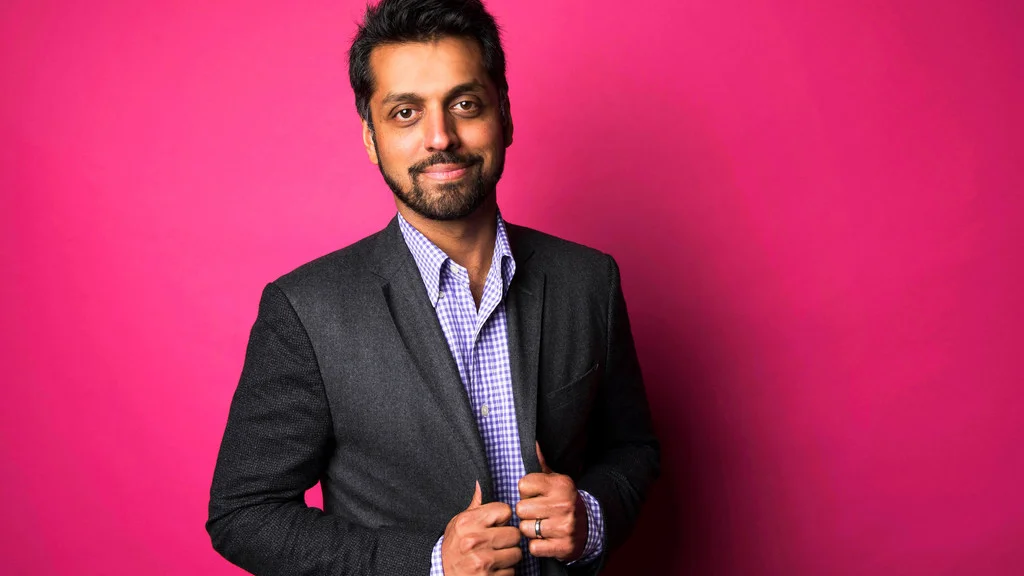


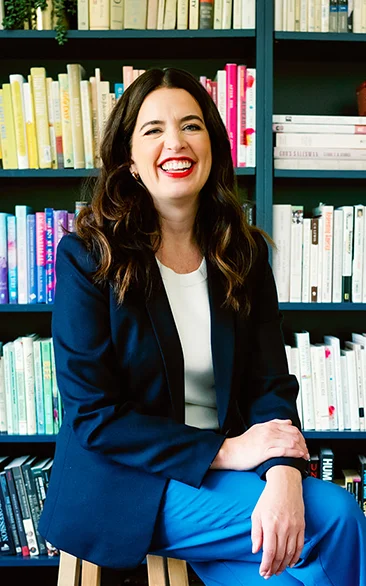

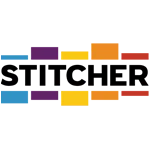





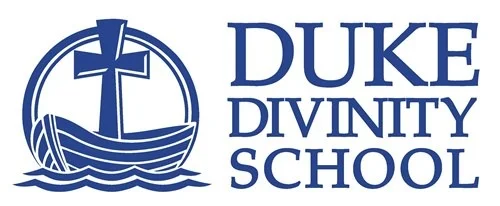
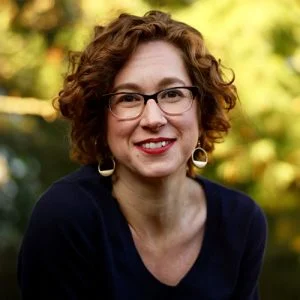
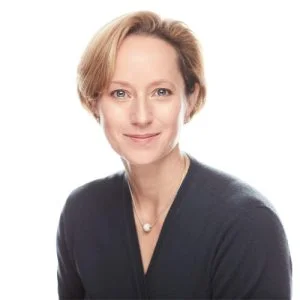
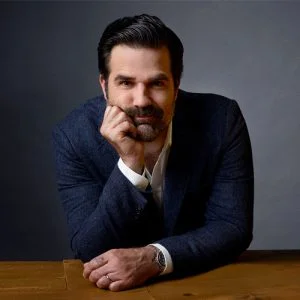

Leave a Reply